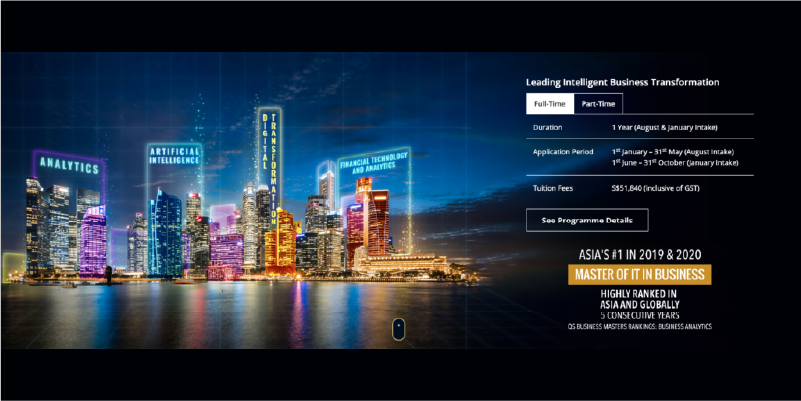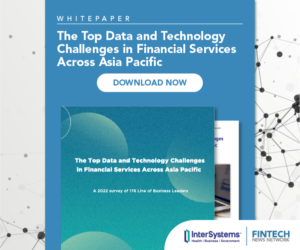As the financial industry continues to undergo rapid digital transformation, professionals with expertise in fintech and IT are in high demand. As a result, numerous educational institutions around the world have launched specialized Masters programs in fintech to cater to this growing need.
These programs aim to provide students with a comprehensive understanding of fintech, data analytics, blockchain, artificial intelligence (AI), and other cutting-edge innovations shaping the future of finance.
This article presents the top five Masters programs in fintech and IT in Singapore that have gained recognition for their academic excellence, industry partnerships, and ability to produce highly skilled graduates.
These programs offer a robust curriculum that combines theoretical knowledge with practical experiences but also provide students with networking opportunities and access to real-world projects.
Master of Science in Digital Financial Technology – National University of Singapore
Duration: 18 Months (Full-time)/Tuition fees: S$66,490
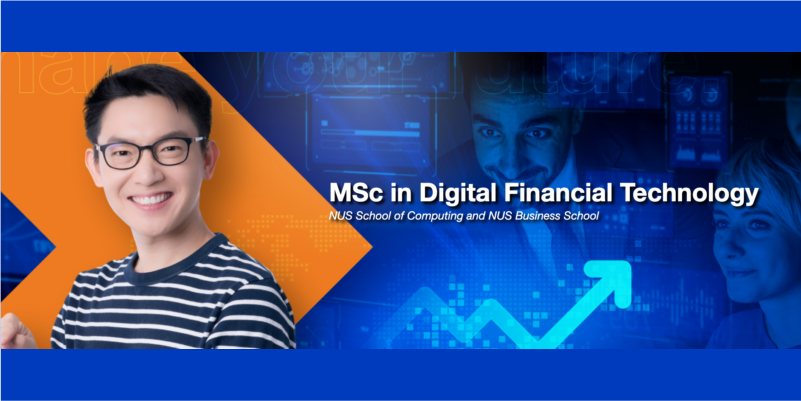
The National University of Singapore (NUS) Master of Science in Digital Financial Technology (MSc DFintech) is jointly offered by the NUS School of Computing and NUS Business School.
The fintech industry has grown explosively in the last decade, with the advances being made in cloud computing, data analytics and AI.
To meet surging demand for high quality fintech talent in Singapore and globally, this new flagship graduate program in fintech is designed to help students build a strong foundation in computing and finance, and features a range of elective courses organized along three tracks: Computing Technologies, Financial Data Analytics and Intelligence, and Digital Financial Transactions and Risk Management.
The program is intended primarily to help prepare graduates for challenging but rewarding careers as AI software developers, data scientists, fintech security specialists, financial quantitative analysts and other similar professions in financial institutions or fintech firms.
Master of Science (Industry 4.0) – NUS
Duration: 12–18 Months (Full-time)/Tuition fees: S$54,500
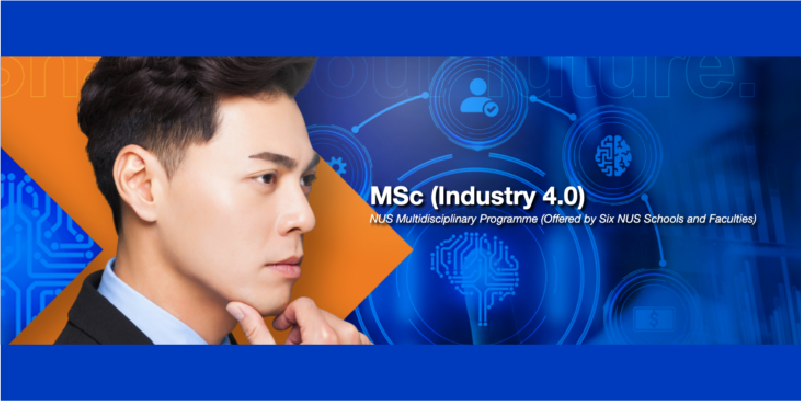
The Master of Science (Industry 4.0), offered by the NUS, is a multidisciplinary program that taps on the deep expertise of six NUS academic units, namely: the College of Design and Engineering, the Faculty of Science, the Institute of Systems Science, the School of Business, the School of Computing, and the School of Continuing and Lifelong Education. It was designed in alignment with the Singapore Economic Development Board’s (EDB) Smart Industry Readiness Index, to support Singapore’s drive towards becoming a Smart Nation.
The program aims to prepare graduates for the emerging workplace of the fourth industrial revolution (also known as Industry 4.0), by equipping them with the skills and knowledge they need to keep pace with the changes occurring in various industries due to technological disruption, and to lead transformation to enhance productivity in the workplace.
The program features a six-month-long capstone project, where a team of students work on a project sponsored by an actual company. Capstone projects may span different areas, including Internet of Things (IoT), data analytics across various sectors, digital supply chain, and cloud computing.
Offered on both a full-time and part-time basis, the program is taught by world-class NUS faculty, as well as industry practitioners with extensive field experience.
Master of Science in Financial Technology – Nanyang Technological University
Duration: 1 Year (Full-time)/Tuition fees: S$59,400
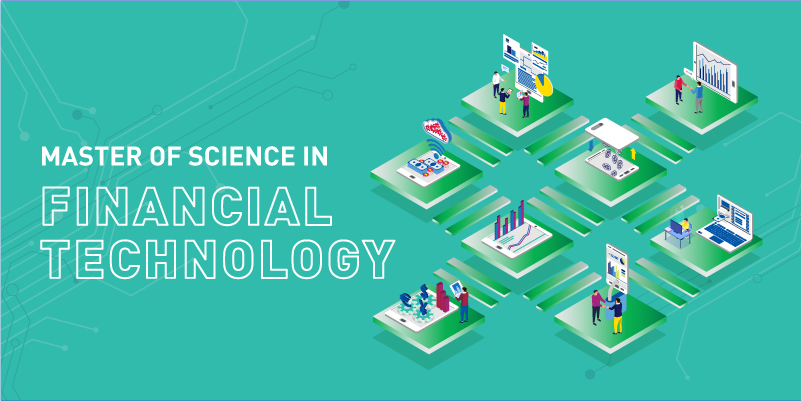
Nanyang Technological University offers the Master of Science in Fintech hosted by the School of Physical and Mathematical Sciences. The curriculum is built on data science, AI, and information technology (IT) and provides students with the fintech skills necessary to navigate the changing landscape of the finance industry. Students will develop in-depth mastery of disruptive technologies in finance, including financial automation (e.g., robo-advisors), financial cryptography (e.g., blockchain technology), and digital financial services (e.g., financial inclusion).
The MSc in Fintech program is an intensive one-year full-time or two-year part-time program by coursework taught in 3 trimesters per academic year. The curriculum consists of two specializations: Intelligent Process Automation (IPA) and Digital Financial Services (DFS).
The IPA specialization, previously known as the AI track, is designed for the students who are interested in the technical aspects of fintech. The candidates opting for IPA specialization should have a good bachelor’s degree in a quantitative major or have a good track record in mathematics and programming subjects (especially for non-science/ engineering graduates).
The DFS specialization, previously known as the Operations and Compliance track, is designed for students who are interested in the managerial aspects of fintech. The candidates opting for DFS specialization should have a good bachelor’s degree in a relevant program such quantitative majors or business, or relevant working experience in the finance industry.
Master of IT in Business (MITB) – School of Computing and Information Systems (SMU)
Duration: 1 Year (Full-time)/Tuition fees : S$51,840
Drawing from thought leadership in the ambits of data analytics, technological platforms and business strategies, the Master of IT in Business (MITB) program delves into four specialization tracks to choose from: Financial Technology and Analytics, Analytics, AI, and Digital Transformation. Each of these tracks will equip students with the relevant competencies to lead and compete effectively in the digital age.
The MITB program was launched in 2007 with the first track focused on Financial Services (FS) and designed to train students in processes, operations, technology solutions and innovation strategies in the banking and financial services sector.
The program launched its second track, Analytics, in 2011, a horizontal focused degree where students learn the linkages across service delivery process, data, operations, analytics, technology and architecture of several service industries, including healthcare, hospitality, retail, supply chain, transportation and entertainment.
In 2018, MITB launched the AI track to train professionals on building AI tools and implementing algorithms to solve complex problems. Finally, its latest track, Digital Transformation, was launched in 2021 and aims to equip graduates with the blend of ICT knowledge and skills to strategize and execute digital transformation successfully for a complex organization in a rapidly changing environment.
Master of Science in Data Science and Financial Technology – Singapore Institute of Management (SIM) & Goldsmith, University of London
Duration: 2 Years (Full-time)/Tuition fees: S$39,000
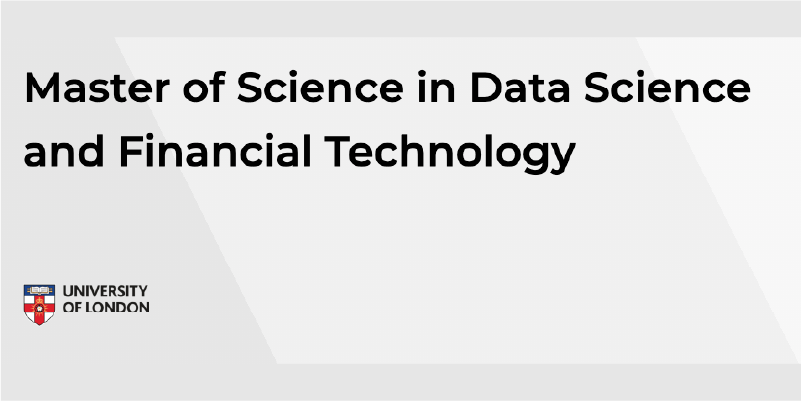
The Master of Science in Data Science aims to provide students with the technical and practical skills to analyze the big data that is the key to success in future business, digital media, and science.
Students will learn to combine the statistical skills of data analysis and the computational techniques needed to carry out this analysis on a large scale; learn the mathematical foundations of statistics, data mining and machine learning, and apply these to practical, real-world data; learn the computational techniques needed to efficiently analyze very large data sets; and get guidance from industry experts.
As well as MSc Data Science, students have the following pathway options that will give them the chance to specialize in a particular industry area. For each MSc Data Science pathway, in addition to the pathway-specific skills, students will learn core skills that are essential for data scientists such as statistical analysis, programming, machine learning, data visualization, and big data technologies.
The pathway options are:
- MSc Data Science and Artificial Intelligence
- MSc Data Science and Financial Technologies
- MSc Data Science and Econometrics
- MSc Data Science and Marketing
- SEO Powered Content & PR Distribution. Get Amplified Today.
- PlatoData.Network Vertical Generative Ai. Empower Yourself. Access Here.
- PlatoAiStream. Web3 Intelligence. Knowledge Amplified. Access Here.
- PlatoESG. Automotive / EVs, Carbon, CleanTech, Energy, Environment, Solar, Waste Management. Access Here.
- BlockOffsets. Modernizing Environmental Offset Ownership. Access Here.
- Source: https://fintechnews.sg/75191/fintech/top-5-fintech-and-it-masters-programs-in-singapore/
- :has
- :is
- :where
- 1
- 2011
- 2018
- 2021
- 7
- a
- ability
- academic
- access
- across
- actual
- addition
- advances
- age
- AI
- aim
- aims
- algorithms
- alignment
- along
- also
- an
- analysis
- Analysts
- analytics
- analyze
- and
- Apply
- architecture
- ARE
- AREA
- areas
- around
- article
- artificial
- artificial intelligence
- Artificial intelligence (AI)
- AS
- aspects
- Automation
- Banking
- basis
- becoming
- being
- Big
- Big Data
- Blend
- blockchain
- blockchain technology
- both
- build
- Building
- built
- business
- Business School
- but
- by
- candidates
- caps
- careers
- carry
- cater
- chain
- challenging
- Chance
- Changes
- changing
- Choose
- Cloud
- cloud computing
- College
- combine
- combines
- company
- compete
- complex
- compliance
- comprehensive
- computing
- consists
- continues
- continuing
- Core
- courses
- cryptography
- Curriculum
- cutting-edge
- data
- data analysis
- Data Analytics
- data mining
- data science
- data sets
- data visualization
- decade
- deep
- deep expertise
- Degree
- delivery
- Demand
- Design
- designed
- develop
- developers
- Development
- different
- digital
- digital age
- Digital media
- Digital Transformation
- Disruption
- disruptive
- drive
- due
- e
- each
- Economic
- Economic Development
- EDB
- Education
- educational
- effectively
- efficiently
- emerging
- Engineering
- enhance
- Entertainment
- Environment
- especially
- essential
- Excellence
- execute
- experience
- Experiences
- expertise
- experts
- extensive
- false
- Features
- Fees
- field
- Finally
- finance
- financial
- financial data
- financial inclusion
- Financial institutions
- financial services
- financial technology
- fintech
- firms
- First
- flagship
- focused
- following
- For
- Foundation
- Foundations
- four
- Fourth
- friendly
- from
- FS
- future
- gained
- get
- Give
- Globally
- good
- graduate
- Growing
- grown
- guidance
- Have
- healthcare
- help
- High
- highly
- Horizontal
- hospitality
- hosted
- HTTPS
- ICT
- implementing
- in
- in-depth
- Including
- inclusion
- index
- industrial
- Industrial Revolution
- industries
- industry
- industry 4.0
- industry experts
- information
- Information Systems
- information technology
- Innovation
- innovations
- Institute
- institutions
- Intelligence
- Intelligent
- intended
- interested
- Internet
- internet of things
- into
- iot
- IT
- ITS
- Keep
- Key
- knowledge
- known
- landscape
- large
- Last
- latest
- launched
- lead
- Leadership
- LEARN
- learning
- London
- machine
- machine learning
- made
- major
- Majors
- management
- managerial
- master
- mathematical
- mathematics
- max-width
- May..
- Media
- Meet
- Mining
- MitB
- months
- multidisciplinary
- namely
- nation
- National
- Navigate
- necessary
- Need
- needed
- networking
- Networking opportunities
- New
- numerous
- NUS
- occurring
- of
- offer
- offered
- Offers
- on
- Operations
- opportunities
- Options
- or
- organization
- Organized
- Other
- out
- Pace
- particular
- partnerships
- pathway
- physical
- Platforms
- plato
- Plato Data Intelligence
- PlatoData
- Practical
- Prepare
- presents
- previously
- primarily
- problems
- process
- Process Automation
- processes
- produce
- productivity
- professionals
- Program
- Programming
- Programs
- project
- projects
- provide
- provides
- quality
- quantitative
- range
- rapid
- rapidly
- Readiness
- real world
- recognition
- record
- relevant
- result
- retail
- return
- Revolution
- rewarding
- Risk
- risk management
- robust
- Scale
- School
- Science
- SCIENCES
- scientists
- Second
- sector
- Sectors
- security
- service
- Services
- Sets
- several
- shaping
- should
- SIM
- similar
- Singapore
- Singapore’s
- SIX
- skilled
- skills
- smart
- Software
- Software Developers
- Solutions
- SOLVE
- span
- specialists
- specialize
- specialized
- Sponsored
- statistical
- statistics
- strategies
- strong
- Students
- success
- Successfully
- such
- supply
- supply chain
- support
- surging
- Systems
- Talent
- Taps
- taught
- team
- Technical
- techniques
- technological
- Technologies
- Technology
- that
- The
- The Future
- the world
- their
- Them
- theoretical
- These
- they
- things
- this
- thought
- thought leadership
- three
- to
- tools
- top
- top 5
- towards
- track
- Train
- Transactions
- Transformation
- transportation
- two
- undergo
- understanding
- units
- university
- various
- very
- visualization
- was
- WELL
- WHO
- will
- with
- Work
- working
- Workplace
- world
- world-class
- year
- years
- zephyrnet


